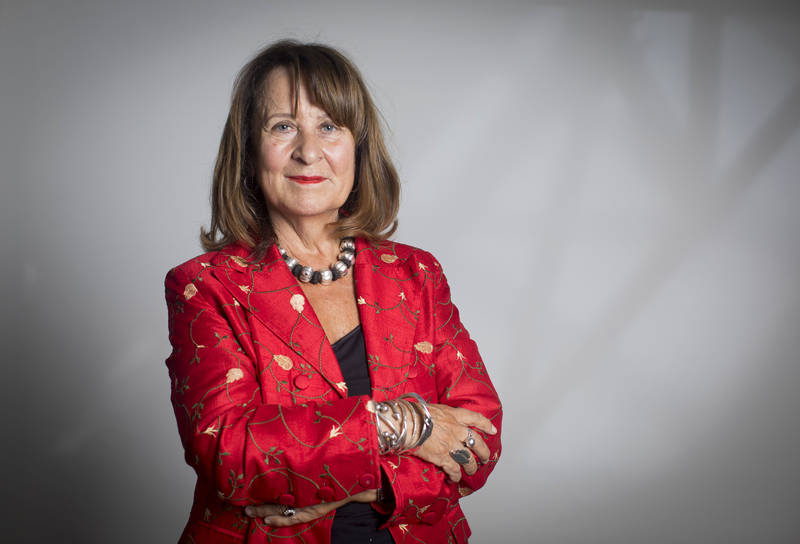
PUTTING many women offenders behind bars does not help them or society, leading human rights lawyer Helena Kennedy has warned.
Baroness Kennedy is calling for urgent changes to how women are treated in the criminal justice system and believes Scotland could lead the way for the rest of the UK.
The barrister, who was born in Glasgow, will deliver a passionate call for reform when delivering the annual lecture for leading community justice organisation SACRO in Edinburgh this week.
Talking before her agenda-setting lecture at the Signet Library on Thursday, she said: “My real concern is to talk about the ways in which we have been imprisoning women and how we have to rethink society’s response to women offending.
“So often women within the system are more sinned against than sinners.
“They have been at the receiving end of abuse and ill-treatment and have problems which should be addressed therapeutically, other than through punishment.”
Baroness Kennedy said Scotland could act as an example to the rest of the UK by implementing radical reforms for women in prisons.
A strategy is in place to reduce the number of women in custody in Scotland, including building five small community jails, the first of which is due to open in Maryhill in Glasgow in two years’ time.
A smaller national prison for women is also due to open on the site of the current Cornton Vale facility in Stirling by 2020.
However, in September a report from the Scottish prisons watchdog highlighted concerns the female prison population is not getting significantly smaller.
Baroness Kennedy said there should be one small prison for women who commit serious crime, with other women offenders dealt with in “much more creative ways”.
She said: “You help them with the problems they have got because of what life has confronted them with – often it is about abuse, poverty, coming from dysfunctional families, having been in care, having had men who have ill-treated them as children or young adults, being prostituted.
“If you spent the money that keeps them in prison – which is hugely expensive – on more creative ways with alternatives to prison, you will get far better outcomes.
“You don’t move it onto future generations so it becomes about children’s rights too.”
She added: “When you are looking at prison reform, many of the things that could be done for women could also be done in male prisons.”
In 1992, Baroness Kennedy published a book looking at how the justice system was failing women.
More than two decades on, she has now published Eve Was Shamed, which examines the subject in the context of the modern world – and calls on men to help create an equal society.
She believes while huge progress has been made over time, there are prevailing attitudes towards women which “hold the status quo” in place.
She said: “We have been seeing progress in many issues – rape and domestic violence and child sexual abuse are now on the agenda.
“Social media has been both a way of women sharing those experiences, but also a way in which women have had a sort of exacerbation of the old ways in which they have been abused.
“Now social media is used to abuse, harass, groom girls. It is used to lure women to dates where they end up being violated or raped – so in fact we have got a whole set of new challenges presented in our world which I think makes women’s lives as hard as they have ever been.”
During a career spanning 45 years, Baroness Kennedy has worked on numerous high-profile cases, such as the Brighton bombing trial, the Guildford Four appeal, the attempted jail escape by Moors Murderer Myra Hindley and the transatlantic bomb plot.
Last week she was appointed as the new director of the International Bar Association’s Human Rights Institute.
In her new role she intends to put the importance of the “rule of law” at the top of the agenda, which she says is being undermined in many parts of the world, including in the US under President Donald Trump.
She said: “We are on a slippery slope once you start abandoning the rule of law and the protection of human rights. It’s an exciting opportunity to do something I care about, but on a bigger canvas.”
It’s all a long way from growing up in an “overcrowded” tenement in Glasgow, which didn’t even have a bathroom.
Baroness Kennedy said: “My prism is not the prism of the privileged upper middle classes.
“I think it gives you another way of looking at institutions.”
Helena Kennedy QC

Enjoy the convenience of having The Sunday Post delivered as a digital ePaper straight to your smartphone, tablet or computer.
Subscribe for only £5.49 a month and enjoy all the benefits of the printed paper as a digital replica.
Subscribe